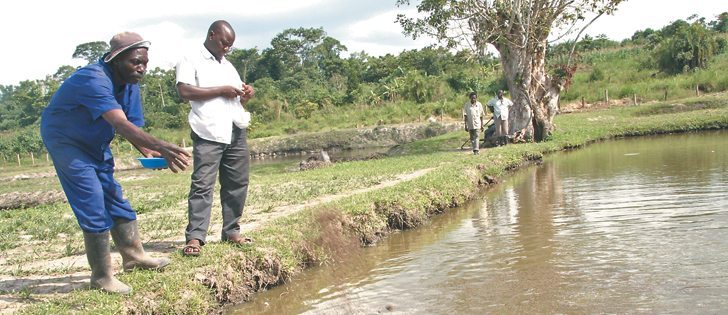The United Nations’ International Day of Co-operatives is observed on the first Saturday of July each year. This year it was held July 5.
As the international community focuses on climate change, sustainable development and a new anti-poverty agenda beyond 2015, United Nations officials are highlighting the role co-operative enterprises can play in economic development, social justice and environmental protection.
In his message for the International Day of Co-operatives, marked this year on July 5, secretary general Ban Ki-moon said that this year’s day falls at a critical time with the UN working to reach the 2015 deadline for the Millennium Development Goals and adopt a long-range sustainable development agenda and a new climate agreement.
Read Also

Proactive approach best bet with looming catastrophes
The Pan-Canadian Action Plan on African swine fever has been developed to avoid the worst case scenario — a total loss ofmarket access.
“Co-operatives are particularly important to agriculture, food security and rural development,” Ban said.
“In the finance sector, co-operatives serve more than 857 million people, including tens of millions who live in poverty.”
He said they are helping communities in both developed and developing countries to generate energy, manage water supplies and provide other basic services.
Ranging from small-scale to multimillion-dollar businesses across the globe, co-operatives operate in all sectors of the economy and provide 100 million jobs worldwide. That’s 20 percent more than multinational enterprises, according to 2011 figures from the UN Food and Agriculture Organization, the UN International Fund for Agriculture Development (IFAD) and the UN World Food Programme.
In 2008, the world’s largest 300 co-operatives had an aggregate turnover of $1.1 trillion, comparable to the gross domestic product of many large economies, the UN agencies said.
In Zambia, the Batoka Dairy Co-operative buys milk from local farmers. The UN’s International Fund for Agricultural Development supports this co-operative by training and funding government-run projects with the aim of improving income levels and food and nutrition security of poor rural households.
“As member-owned, member-run and member-serving businesses, co-operatives can put social justice and equity at the heart of economic progress,” Ban said, adding that they also help to ensure that the production and provision of goods and services matches the needs and aspirations of communities.
Guy Ryder, director general of the UN International Labour Organization (ILO), said in his message that co-operatives reach many of the poor and excluded who are out of reach from the government, and from conventional markets for goods and services, such as smallholder farmers.
There are an estimated 500 million family farms that rely primarily on family members for labour and management across the developed and developing world, according to the FAO.
IFAD, in a partnership with the Malagasy Ministry of Agriculture, Livestock and Fisheries, is trying to help small entrepreneurs like these through the Rural Income Promotion Programme.
In many developing countries, family farms represent up to 80 percent of all farm holdings.
In an effort to highlight the potential that family farmers have to eradicate hunger, preserve natural re-sources and promote sustainable development, the UN had named 2014 as the International Year of Family Farming.
Ryder said that co-operatives are “enterprises of the future” which can complement conventional markets and government action.
He called on members of the international community working on the sustainable development agenda to keep co-operatives in mind when setting out strategies and means for the new targets.
According to a recent study by the ILO and the International Cooperative Alliance called Cooperatives and Sustainable Development Goals, co-operatives contribute to sustainable development and hold the potential to do much more, from creating employment and enhancing gender equality to providing clean energy and financial inclusion to ensuring food security and extending social protection.
“Co-operatives are present in all sectors of the economy and adaptable to a range of contexts,” Ryder said.
“They respond to the triple bottom line of sustainable development: economic development, social justice and environmental protection.”
From UN News Centre, © (2014) United Nations. Reprinted with the permission of the United Nations.

















